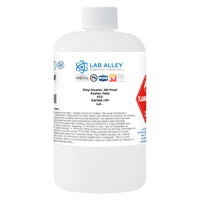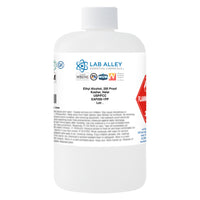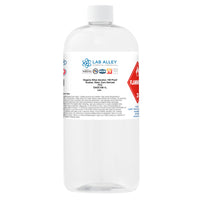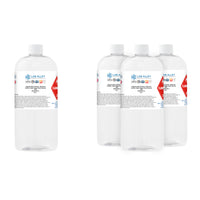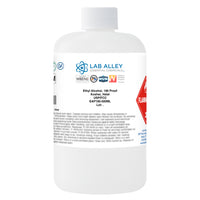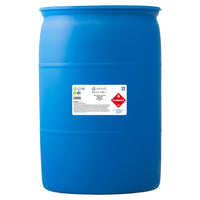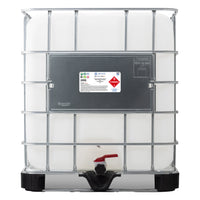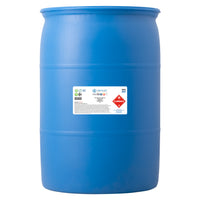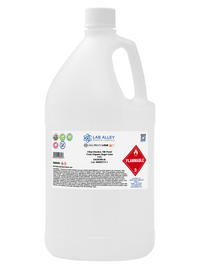Pure Food Grade Ethanol
Food/FCC Grade Undenatured Ethanol, Grain, Corn and Sugar Cane
Lab Alley Pure Food Grade Ethanol
Lab Alley has a vast portfolio of pure ethyl alcohol food grade 140, 190 and 200 proof .
Commercial and industrial uses include, the food and beverage industry, academia, labs, research and development, cosmetics and personal care, and other types of businesses.
About Food Grade Ethanol
Ethanol has GRAS status (Generally Recognized as Safe), and may be added to food if it is certified and high-purity. Ethanol has always been a part of our food because we evolved with ethanol in the natural world. It is present in over-ripe fruits, as fruits will spontaneously ferment in the presence of native/wild yeasts. The same reaction can happen spontaneously in cereals, since grains also contain fermentable sugars. The discovery of controlled fermentation was low-hanging fruit, possibly pre-dating agriculture, and was probably discovered independently in different parts of the world. Evidence of brewing can be traced back 13,000 years by some records. Beyond the obvious intoxicating effects of ethanol, the antimicrobial actions of ethanol were also known for thousands of years, as fermented beverages were often understood to be safer than water.
Ethanol concentration achieved through fermentation is limited to about 15% since a higher concentration will halt yeast activity. A higher proof can be achieved through distillation of the fermented liquid, by evaporating the ethanol and collecting the condensate. Early evidence of distillation dates back as early as 1200 B.C.E. One of the many aliases of ethanol in its purer form is spirit, because it was observed as the “spirit” of the liquid leaving the fermentation brew during distillation. For a long time before chemistry was understood, ethanol was observed to extract the “spirit” or essence of plant materials.
Today, ethanol continues to be used in food in much the same way, even as our chemical understanding and technology advance. Food grade ethanol is used as an extraction solvent and carrier system for flavor and bioactive compounds, as an antimicrobial agent, as a flavor enhancer, and as a solvent for research purposes. Though many non-food applications of ethanol have been discovered, the quality and purity of food grade ethanol alone remains the most critical of all ethanol products, because our safety, health, and culture depend upon it. Most of us are no longer cultivating our own sustenance. The further removed we become from our food, the more we have to trust suppliers to keep our food safe, flavorful, and enjoyable.

